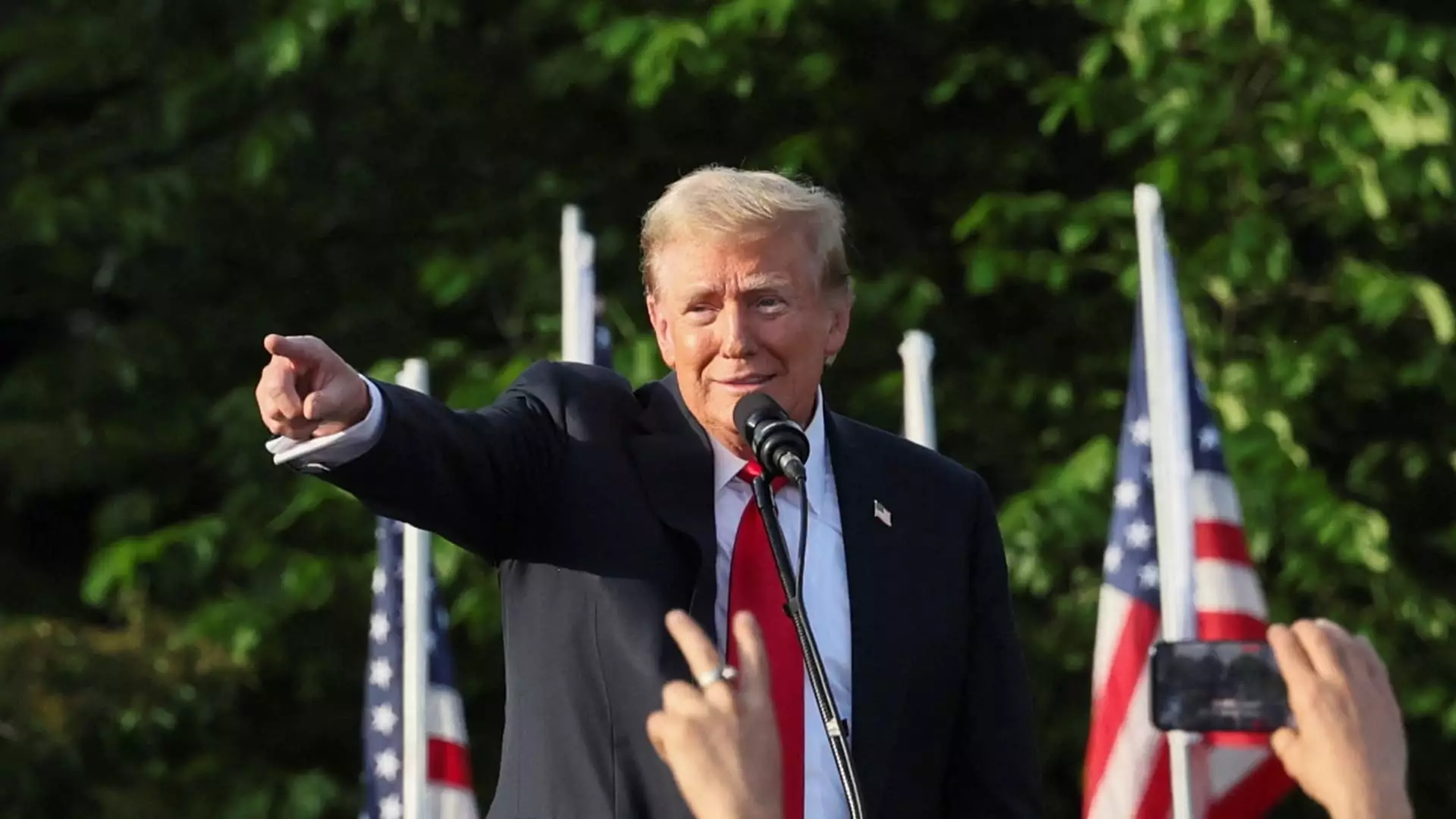Donald Trump’s recent statement about imposing tariffs on countries that do not control the flow of undocumented immigrants into the United States is yet another example of his unsubstantiated claims and empty threats. While addressing the audience in Arizona, he failed to provide any concrete details about the size or scope of the tariffs he would impose, leaving his statement sounding more like a political tactic than a serious policy proposal.
Instead of offering viable solutions to address immigration issues, Trump resorted to inflammatory rhetoric aimed at rallying his supporters. By threatening to “tariff the hell out of that country,” he portrayed a simplistic and aggressive approach to a complex issue that requires careful consideration and strategic planning. Such bombastic statements may appeal to his base but do not contribute to meaningful policy discussions.
Questionable Strategy and Lack of Diplomacy
The idea of using tariffs as a tool to control immigration raises serious concerns about its effectiveness and potential consequences. Trump’s willingness to escalate trade conflicts with major economies like China under the pretext of immigration enforcement demonstrates a lack of diplomatic finesse and strategic thinking. Such a strategy could not only harm diplomatic relations but also have negative repercussions on the global economy.
Legal and Ethical Implications
Moreover, Trump’s proposal to impose tariffs on countries for their failure to address undocumented immigration raises legal and ethical questions. It is essential to consider the implications of using trade policy as a punitive measure against nations that may already be grappling with their own challenges in managing migration flows. Such an approach could violate international trade agreements and undermine the principles of cooperation and mutual respect among nations.
Trump’s fixation on border security and immigration as key election issues reflects his reliance on divisive tactics to garner support. By demonizing immigrants and portraying them as a threat to national security, he seeks to appeal to nativist sentiments and stoke fear among voters. This exploitation of a vulnerable population for political gain is not only morally reprehensible but also detrimental to the social fabric of the country.
Furthermore, Trump’s criticism of President Joe Biden’s asylum ban as “outrageous” while advocating for similar restrictive policies during his own presidency reeks of hypocrisy. His attempts to discredit Biden’s measures without offering tangible alternatives highlight the lack of coherence and consistency in his approach to immigration issues. By dismissing Biden’s efforts as inadequate without acknowledging his administration’s failures, Trump exposes his double standards and opportunistic behavior.
Donald Trump’s proposal to use tariffs as a deterrent against undocumented immigration is flawed, short-sighted, and counterproductive. His reliance on sensationalist language, unsubstantiated claims, and divisive rhetoric only serves to deepen polarization and hinder constructive dialogue on immigration reform. As voters evaluate political candidates’ approaches to addressing complex challenges like immigration, it is crucial to demand thoughtful, evidence-based policies that respect human rights, uphold legal standards, and promote international cooperation.

Leave a Reply